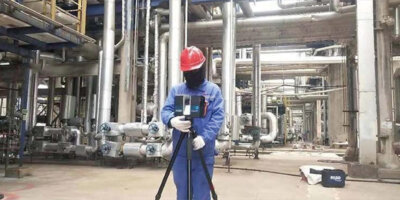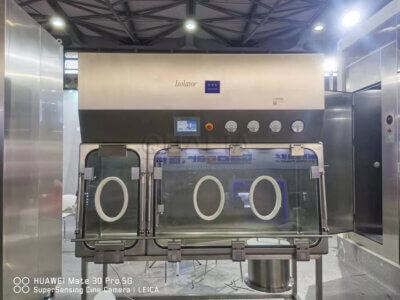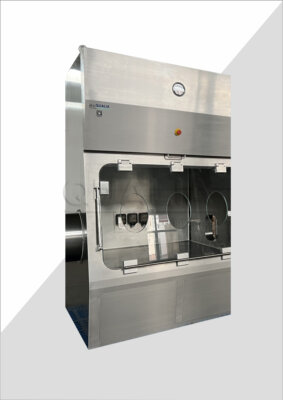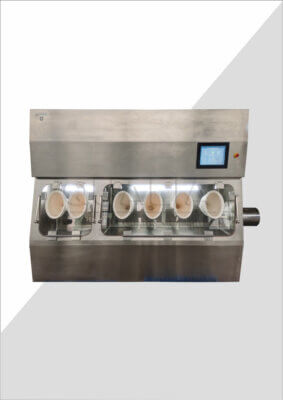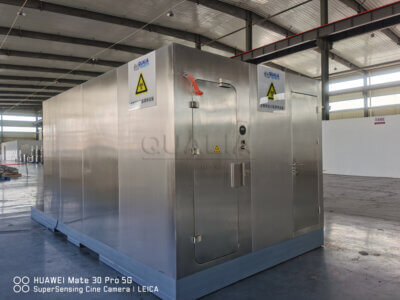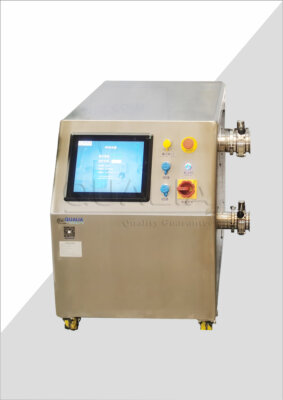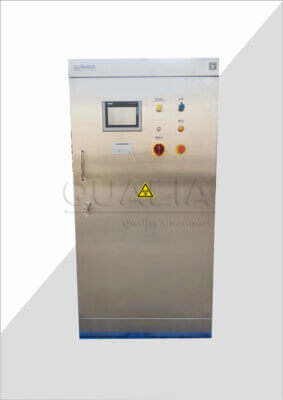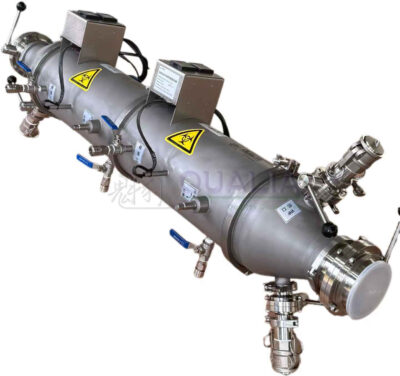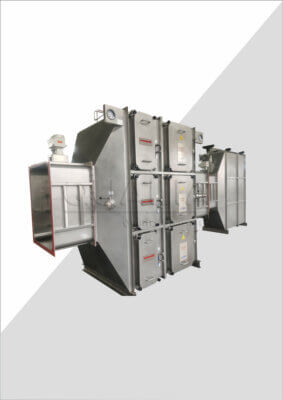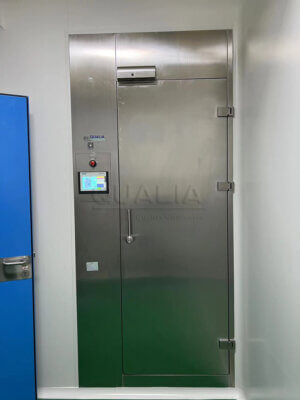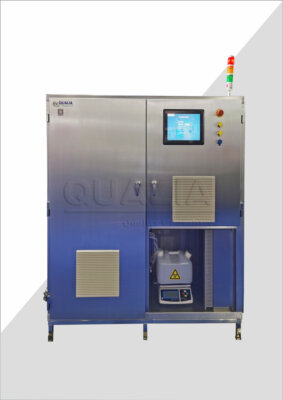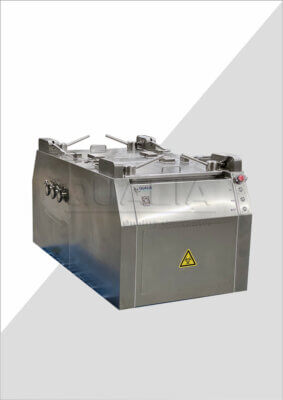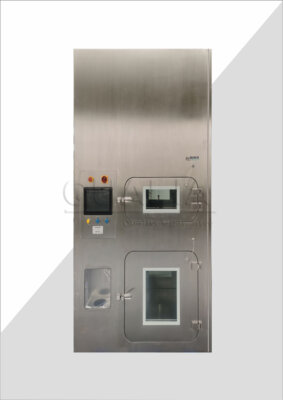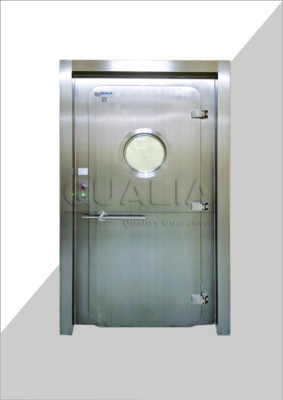Biosafety Level 4 (BSL-4) laboratories are at the forefront of global efforts to study and contain the world's most dangerous pathogens. These high-containment facilities play a crucial role in advancing our understanding of deadly viruses and developing countermeasures against potential pandemics. As the number of BSL-4 labs continues to grow worldwide, the need for international collaboration and knowledge sharing has never been more critical.
In recent years, BSL-4 conferences have emerged as vital platforms for connecting global experts in the field of biosafety and biosecurity. These events bring together scientists, policymakers, and industry professionals to discuss the latest advancements, challenges, and best practices in managing high-containment laboratories. From cutting-edge research presentations to workshops on safety protocols, these conferences serve as a nexus for the exchange of ideas and the forging of international partnerships.
As we delve deeper into the world of BSL-4 conferences, we'll explore their significance in promoting global biosafety, the key topics addressed, and the impact they have on shaping policies and practices in the field. We'll also examine how these gatherings contribute to the ongoing efforts to enhance pandemic preparedness and response capabilities worldwide.
BSL-4 conferences are essential for fostering international collaboration and knowledge sharing among experts working with the world's most dangerous pathogens, ultimately contributing to global health security and pandemic preparedness.
What are the primary objectives of BSL-4 conferences?
BSL-4 conferences serve multiple critical objectives in the realm of global biosafety and biosecurity. These gatherings aim to bring together experts from various disciplines to address the complex challenges associated with operating high-containment laboratories and studying dangerous pathogens.
The primary goals of these conferences include facilitating knowledge exchange, promoting best practices, and fostering international collaboration. Attendees have the opportunity to share their experiences, discuss emerging threats, and explore innovative solutions to common problems faced by BSL-4 facilities worldwide.
One of the key aspects of BSL-4 conferences is the focus on enhancing global preparedness for potential pandemics. By bringing together experts from different countries and institutions, these events contribute to the development of coordinated strategies for detecting, preventing, and responding to outbreaks of highly infectious diseases.
BSL-4 conferences play a crucial role in advancing global biosafety standards by providing a platform for experts to share knowledge, establish collaborations, and develop unified approaches to handling the world's most dangerous pathogens.
| Objective | Description |
|---|---|
| Knowledge Exchange | Sharing of latest research findings and technological advancements |
| Best Practices | Discussion and establishment of standardized safety protocols |
| Collaboration | Fostering international partnerships and joint research initiatives |
| Pandemic Preparedness | Development of coordinated strategies for global health security |
These conferences not only serve as a forum for scientific discourse but also play a vital role in shaping policies and regulations related to high-containment laboratories. By facilitating discussions between researchers, policymakers, and regulatory bodies, BSL-4 conferences contribute to the development of more robust and harmonized international standards for biosafety and biosecurity.
How do BSL-4 conferences contribute to global biosafety efforts?
BSL-4 conferences play a pivotal role in advancing global biosafety efforts by providing a unique platform for experts to collaborate and share insights on the latest developments in high-containment laboratory practices. These gatherings serve as a catalyst for improving safety standards and protocols across the international biosafety community.
One of the key contributions of these conferences is the promotion of standardized practices and protocols for BSL-4 facilities worldwide. By bringing together experts from various countries and institutions, these events facilitate the exchange of best practices and lessons learned, ultimately leading to more robust and universally applicable safety measures.
Furthermore, BSL-4 conferences often feature presentations and workshops on cutting-edge technologies and methodologies for enhancing biosafety. This includes discussions on advanced personal protective equipment, improved decontamination procedures, and innovative containment systems. QUALIA, a leading provider of biosafety solutions, often participates in these conferences to showcase their latest advancements in laboratory safety equipment.
BSL-4 conferences significantly contribute to global biosafety efforts by fostering the development and dissemination of standardized protocols, promoting technological advancements, and facilitating international collaboration in high-containment research.
| Contribution | Impact |
|---|---|
| Standardization | Harmonization of safety protocols across global BSL-4 facilities |
| Technology Sharing | Introduction of innovative biosafety equipment and methodologies |
| Risk Assessment | Improved strategies for identifying and mitigating potential hazards |
| Training | Enhanced education and skill development for BSL-4 personnel |
These conferences also provide a forum for discussing emerging biosafety challenges and developing proactive strategies to address them. By bringing together diverse perspectives from around the world, BSL-4 conferences enable the biosafety community to stay ahead of potential threats and adapt their practices accordingly.
What key topics are typically addressed at BSL-4 conferences?
BSL-4 conferences cover a wide range of topics crucial to the operation of high-containment laboratories and the study of dangerous pathogens. These events typically feature a diverse array of presentations, panel discussions, and workshops that address both technical and policy-related aspects of biosafety and biosecurity.
One of the primary focuses of these conferences is the latest research on emerging infectious diseases. Experts present their findings on newly discovered pathogens, novel treatment approaches, and vaccine development efforts. These sessions provide valuable insights into the current state of knowledge regarding high-risk biological agents and inform future research directions.
Another key topic often addressed is the design and operation of BSL-4 facilities. This includes discussions on state-of-the-art containment systems, air handling technologies, and decontamination procedures. Companies like QUALIA often showcase their innovative BSL-4 lab global biosafety conferences solutions during these events, demonstrating advancements in mobile and modular laboratory designs.
BSL-4 conferences serve as a critical platform for addressing a wide range of topics essential to global biosafety, including cutting-edge research on dangerous pathogens, advancements in laboratory design and operation, and the development of international biosecurity policies and regulations.
| Topic Category | Examples |
|---|---|
| Pathogen Research | Emerging viruses, zoonotic diseases, genomic studies |
| Laboratory Design | Containment systems, air handling, decontamination technologies |
| Safety Protocols | Personal protective equipment, incident response procedures |
| Biosecurity | Access control, pathogen inventory management, cyber security |
The conferences also dedicate significant attention to biosecurity measures, including discussions on preventing unauthorized access to dangerous pathogens, securing sensitive research data, and addressing dual-use concerns. These sessions often involve input from security experts and policymakers to ensure a comprehensive approach to safeguarding high-containment facilities.
How do BSL-4 conferences facilitate international collaboration?
BSL-4 conferences play a crucial role in fostering international collaboration among experts working in high-containment laboratories worldwide. These events serve as a melting pot of ideas, bringing together scientists, policymakers, and industry professionals from diverse backgrounds and geographical locations.
One of the primary ways these conferences facilitate collaboration is through networking opportunities. Attendees have the chance to meet and interact with colleagues from different countries, institutions, and areas of expertise. These interactions often lead to the formation of new research partnerships, joint projects, and knowledge-sharing initiatives that extend well beyond the conference itself.
Furthermore, BSL-4 conferences often feature dedicated sessions for international cooperation. These may include workshops on harmonizing global biosafety standards, discussions on cross-border pathogen sharing protocols, or presentations on multinational research efforts. Such sessions help break down barriers and promote a more unified approach to global biosafety challenges.
BSL-4 conferences serve as catalysts for international collaboration by providing a platform for experts to form partnerships, share resources, and develop coordinated strategies for addressing global biosafety and biosecurity challenges.
| Collaboration Aspect | Description |
|---|---|
| Networking | Face-to-face interactions leading to new partnerships |
| Joint Research | Formation of multinational research teams and projects |
| Resource Sharing | Exchange of protocols, data, and materials between institutions |
| Policy Harmonization | Development of consistent international biosafety standards |
These conferences also often result in the establishment of ongoing collaborative networks. For example, the Biosafety Level 4 Zoonotic Laboratory Network (BSL4ZNet) was formed as a result of discussions at such conferences, creating a permanent framework for international cooperation in high-containment research.
What role do BSL-4 conferences play in shaping biosafety policies and regulations?
BSL-4 conferences play a significant role in influencing and shaping biosafety policies and regulations at both national and international levels. These gatherings serve as important forums where policymakers, regulatory bodies, and scientific experts can engage in meaningful discussions about the current state and future direction of biosafety governance.
One of the key ways these conferences impact policy is by providing a platform for presenting and debating the latest research and best practices in biosafety. Policymakers attending these events gain valuable insights into the practical challenges faced by BSL-4 laboratories, which helps inform more effective and realistic regulations.
Moreover, BSL-4 conferences often feature dedicated policy sessions where proposed regulations or international guidelines are discussed and refined. These sessions allow for direct input from the scientific community, ensuring that policies are grounded in the most up-to-date knowledge and practical considerations.
BSL-4 conferences serve as crucial platforms for shaping biosafety policies by facilitating direct dialogue between scientists and policymakers, showcasing best practices, and providing a forum for debating and refining proposed regulations and international guidelines.
| Policy Impact | Example |
|---|---|
| Regulatory Updates | Incorporation of new safety protocols into national guidelines |
| International Standards | Development of harmonized global biosafety standards |
| Risk Assessment | Improved methodologies for evaluating biosafety and biosecurity risks |
| Ethical Frameworks | Addressing ethical considerations in high-containment research |
These conferences also contribute to the development of international biosafety standards. By bringing together experts from various countries, they help identify common challenges and promote the adoption of unified approaches to biosafety and biosecurity. This is particularly important as the number of BSL-4 laboratories continues to grow globally, necessitating consistent safety standards across different regions.
How do BSL-4 conferences address emerging threats and pandemic preparedness?
BSL-4 conferences play a crucial role in addressing emerging threats and enhancing global pandemic preparedness. These gatherings serve as early warning systems, bringing together experts who are at the forefront of identifying and studying new pathogens with pandemic potential.
One of the key focuses of these conferences is the presentation of research on newly discovered or evolving pathogens. Scientists share their findings on the characteristics, transmission patterns, and potential impacts of these emerging threats. This exchange of information is vital for developing proactive strategies to prevent or mitigate future outbreaks.
Furthermore, BSL-4 conferences often feature sessions dedicated to pandemic preparedness and response. These may include workshops on rapid diagnostic techniques, discussions on vaccine development strategies, and presentations on innovative containment methods. Companies like QUALIA often showcase their advanced BSL-4 lab global biosafety conferences solutions during these events, demonstrating how mobile laboratories can be deployed quickly in response to outbreaks.
BSL-4 conferences are instrumental in enhancing global pandemic preparedness by facilitating the rapid sharing of information on emerging threats, promoting the development of advanced response strategies, and fostering collaboration between experts from various disciplines and regions.
| Pandemic Preparedness Aspect | Conference Contribution |
|---|---|
| Early Warning Systems | Sharing of data on newly identified pathogens |
| Rapid Response Strategies | Workshops on deployment of mobile laboratories |
| Vaccine Development | Discussions on accelerated vaccine research methods |
| Global Coordination | Planning sessions for international outbreak responses |
These conferences also provide a platform for conducting tabletop exercises and simulations of pandemic scenarios. These activities allow participants to test and refine their response strategies, identify potential gaps in preparedness, and develop more effective coordination mechanisms for dealing with global health emergencies.
What are the future trends and challenges discussed at BSL-4 conferences?
BSL-4 conferences serve as crucial platforms for discussing future trends and addressing emerging challenges in the field of high-containment research and biosafety. These gatherings bring together experts to anticipate and prepare for the evolving landscape of global health security.
One of the key trends often discussed is the increasing use of advanced technologies in BSL-4 laboratories. This includes the integration of artificial intelligence and machine learning for predictive modeling of disease outbreaks, as well as the use of robotics and automation to enhance safety and efficiency in high-risk environments.
Another significant topic is the ethical considerations surrounding gain-of-function research and the potential dual-use nature of certain studies. Conferences provide a forum for debating the risks and benefits of such research, and for developing ethical frameworks to guide future studies.
BSL-4 conferences play a vital role in addressing future challenges by facilitating discussions on emerging technologies, ethical considerations, and evolving biosafety standards, ensuring that the global community is prepared to face new threats and leverage new opportunities in high-containment research.
| Future Trend/Challenge | Description |
|---|---|
| Advanced Technologies | AI, robotics, and automation in BSL-4 labs |
| Ethical Considerations | Debates on gain-of-function research and dual-use potential |
| Climate Change Impact | Discussions on shifting patterns of zoonotic diseases |
| Biosecurity in the Digital Age | Addressing cybersecurity threats to BSL-4 facilities |
The impact of climate change on the emergence and spread of infectious diseases is another forward-looking topic frequently addressed at these conferences. Experts discuss how shifting environmental conditions may affect pathogen distribution and zoonotic disease patterns, and how BSL-4 facilities can adapt their research priorities accordingly.
How can professionals in the field benefit from attending BSL-4 conferences?
Professionals working in the field of high-containment research and biosafety can gain immense benefits from attending BSL-4 conferences. These events offer unique opportunities for learning, networking, and professional development that are difficult to replicate in other settings.
One of the primary advantages is the access to cutting-edge research and technological advancements. Attendees can learn about the latest discoveries in pathogen research, innovative laboratory techniques, and state-of-the-art biosafety equipment. This knowledge can be directly applied to improve practices and procedures in their own facilities.
Networking is another crucial benefit of these conferences. Professionals have the chance to connect with peers from around the world, fostering collaborations that can lead to joint research projects, resource sharing, and career advancement opportunities. These connections can be particularly valuable for early-career researchers and those looking to expand their professional network.
Attending BSL-4 conferences provides professionals with unparalleled opportunities for knowledge acquisition, networking, and skill development, ultimately enhancing their expertise and contributing to the advancement of global biosafety practices.
| Benefit | Description |
|---|---|
| Knowledge Acquisition | Access to latest research findings and technological advancements |
| Networking | Opportunities to connect with global experts and potential collaborators |
| Skill Development | Workshops and training sessions on specialized techniques |
| Career Advancement | Exposure to job opportunities and potential research partnerships |
Moreover, many BSL-4 conferences offer specialized workshops and training sessions that allow attendees to develop new skills or refine existing ones. These may include hands-on demonstrations of new equipment, such as the mobile BSL-4 laboratories showcased by QUALIA, or training in advanced biosafety protocols.
In conclusion, BSL-4 conferences serve as vital hubs for connecting global experts in the field of high-containment research and biosafety. These events play a crucial role in advancing our understanding of dangerous pathogens, improving safety protocols, and enhancing global preparedness for potential pandemics. By facilitating knowledge exchange, fostering international collaborations, and addressing emerging challenges, these conferences contribute significantly to the ongoing efforts to safeguard global health security.
The discussions and collaborations that emerge from these gatherings have far-reaching impacts, influencing everything from laboratory design and safety protocols to international biosecurity policies. As the number of BSL-4 facilities continues to grow worldwide, the importance of these conferences in promoting standardized practices and coordinated responses to global health threats cannot be overstated.
For professionals in the field, attending BSL-4 conferences offers unparalleled opportunities for learning, networking, and career development. These events provide a platform for staying at the forefront of scientific advancements, forming valuable partnerships, and contributing to the collective effort of making the world safer from the threat of deadly pathogens.
As we look to the future, BSL-4 conferences will undoubtedly continue to evolve, addressing new challenges and incorporating emerging technologies. Their role in shaping the landscape of global biosafety and biosecurity will remain critical, ensuring that the international community is well-prepared to face whatever threats may arise in our increasingly interconnected world.
External Resources
WHO Consultative Meeting on High/Maximum Containment (Biosafety Level 4) Laboratories Networking – This page details the inaugural Consultative Meeting held by the WHO in 2017, which brought together experts from over 20 countries to discuss challenges, collaborations, and solutions for BSL-4 laboratories.
The Biosafety Level-4 Laboratory at RKI – This resource from the Robert Koch Institute (RKI) describes the BSL-4 laboratory in Germany, including its design, security measures, and the types of pathogens it handles, such as Ebola and Nipah viruses.
Global Experts Join Together to Learn About Pandemic Preparedness – This article discusses the 2022 Biosafety Level 4 Zoonotic Laboratory Network (BSL4ZNet) International Conference, focusing on pandemic preparedness, emerging pathogens, and advances in biosafety and biosecurity.
Growing Number of High-Security Pathogen Labs Around World Raises Concerns – This article from Science.org discusses the increasing number of BSL-4 labs globally, the associated risks, and the need for stronger international standards and oversight to prevent accidental releases or misuse of pathogens.
Biosafety Level 4 Zoonotic Laboratory Network (BSL4ZNet) – This link provides detailed information about the BSL4ZNet, including its mission, the types of pathogens studied, and the safety measures implemented in BSL-4 facilities.
Related Contents:
- Biodefense Research in BSL-4 Labs: Protecting Public
- BSL-4 Standards: Global Regulations for Biosafety
- International BSL-3/4 Standards: Global Compliance
- Global Disease Surveillance: BSL-4 Lab Networks
- BSL-4 Biodefense: Cutting-Edge Research Programs
- BSL-3 Biosecurity: Essential Protective Measures
- BSL-4 Collaboration: Global Research Partnerships
- BSL-4 Tech Transfer: Advancing Global Biosafety
- BSL-3 Lab Pathogens: Risk Group 3 Agents Guide


